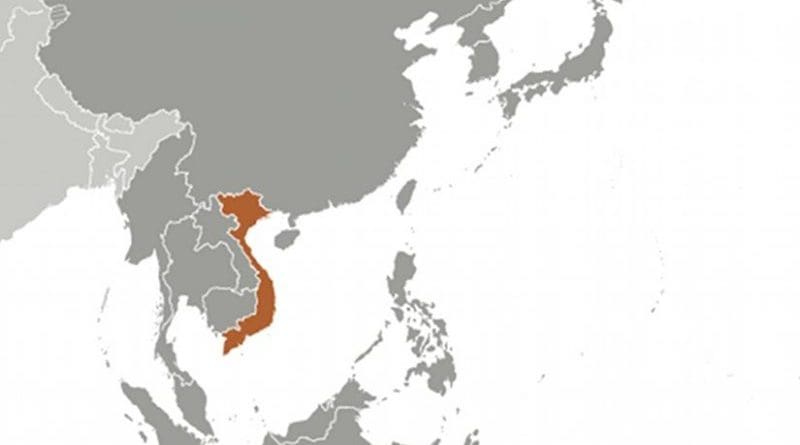Vietnam: Government Losing Battle Against Growth Of Evangelicals
By UCA News
It’s a Saturday night in Ho Chi Minh City, and the kids are starting to gather at the Tan Thuan evangelical church in District 7. They pull up on shiny motorbikes, clothes neat, hair slicked back. They cast shy looks at strangers, greet friends exuberantly, and sprawl across the pews.
“Here, the brotherhood is close, I have a lot of friends,” said Tin, 24, who attends the church’s Saturday youth services regularly with his 27-year-old brother Dinh.
One night a week, services are just for youth. One night, they’re for new members. One night: the elderly. There are early morning prayers every day and several services on Sundays. During the week, there are scheduled missions to spread the word of God.
The experience is vastly different to what the brothers grew up with in Quang Ngai province in central Vietnam, where authorities routinely blocked access to church and cut off evangelizing trips.
“In the past, the local government wouldn’t let us gather in a group and wouldn’t let us attend our house church. There used to be one there, but after 1975, the government took it and turned it into a community center,” recalled Dinh.
For decades, local authorities refused to return it and it wasn’t until 2009 that they returned the land and allowed the house church to be rebuilt.
“Here, it’s more free,” he said.
Growing church
Protestantism is thriving in Vietnam. The government’s own census shows an increase from 410,000 in 1999 to 734,000 adherents a decade later. Today, the government puts that figure at around 1 million, while church officials insist it is closer to 2 million. Churches themselves report booming membership, with Sunday services often spilling out the doors as new members crowd in.
Despite the best efforts of the authorities, Protestantism has shown particular growth among Vietnam’s ethnic minorities. While reliable statistics don’t exist, the U.S. State Department wrote in its last religious freedom report that “based on adherents’ estimates, two-thirds of Protestants were members of ethnic minorities.”
But such growth has come in spite of major obstacles. While Protestantism is one of the 38 religions officially recognized by the Vietnamese government, its activities are frequently banned outright by local authorities. Most evangelism is considered illegal and members report their activities are monitored and curtailed. The government has put pressure to prevent a merger of the Northern and Southern evangelical churches, a move aimed at keeping the north (which is more heavily restricted and has not seen the growth of the south) under check.
In rural areas, particularly in the highlands, repression is rife. A report published in June by Human Rights Watch outlined a systemic persecution of ethnic minority Christians who “have been subjected to constant surveillance and other forms of intimidation, arbitrary arrest and mistreatment in security force custody.”
Even in the relatively open Ho Chi Minh City, Christians have faced pushback. Pastors and church members see their movements monitored and have been detained for handing out tracts. Those who are members of churches not officially recognized by the government have faced particular pressure. In January, a prominent Mennonite pastor who has long been a government target was brutally attacked and the perpetrators never arrested. The previous year, his Bible college was ransacked on seven different occasions.
Persecution problem
Open Doors, a Christian nongovernmental organization monitoring persecution, has ranked Vietnam one of the worst countries to be Christian on its World Watch List. The country is ranked 16 among 50 and given the tag of “severe persecution.”
Hoang *, a house church pastor, said despite a general atmosphere of openness in Ho Chi Minh City, even he had been detained on numerous occasions.
“One time I was spreading religion in a nearby area and the police ‘invited me’ and gave me a speech for four hours. They say that you can’t spread religion and I said: people ask so I answer … This happened three times,” he said.
While the situation has generally improved, he said, government control remains omnipresent.
“There is less threat from the outside now but from the inside they still want to take action,” he said.
Quang*, who heads the Tan Thuan evangelical church, said movement was controlled to no small degree.
“We’re allowed to hold activities according to our registration papers that say: ‘in the next year, I want to do this or that.’ You have to let the government know in advance and you can only follow that paper,” he said.
But, he noted, “the magical thing is that the more the government puts pressure on Christian members, the more people want to join.”
Quang’s church is considered midsize, with about 400 regular members and an unknown number of “casual visitors.” In Vietnam, the term house church is something of a misnomer. While some are erected in converted shop houses, many are built specifically as churches and nearly all are registered with the government. One of the biggest “house churches” boasts a congregation of 4,000, is half a city block and has been located on prime downtown real estate for seven decades.
Though groups like Open Doors have listed Vietnam as a dire nation in which to be Christian, one has the sense the government is fighting a losing battle.
“Every year, from central Vietnam to the southern tip, there’s at least 20,000 new Christian converts,” said Hoang An, a young pastor who works with several churches in Ho Chi Minh City.
“God has helped Vietnam to develop Christianity really well.”
*Names have been changed for those who spoke on condition of anonymity, fearing a backlash from the government

